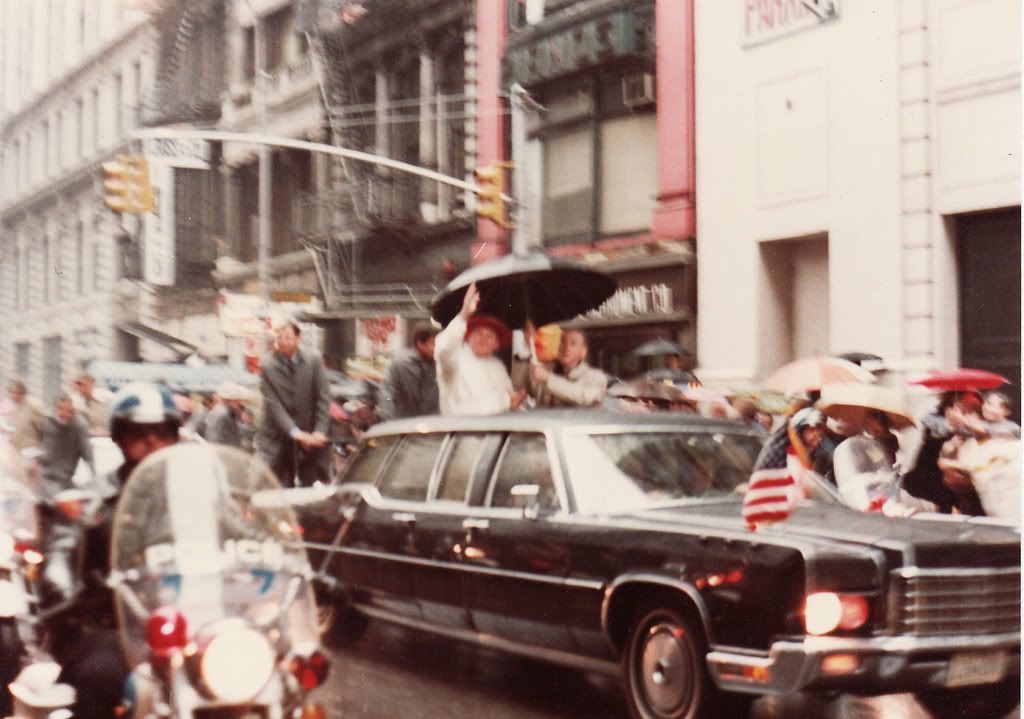Sorry for the time between posts. It's been a whirlwind here, though I can't actually think of anything that's getting done in all the activity. To quote Lewis Carroll, it's taking all the running I can do to stay in the same place.
New York City has been a study in all sorts of human things these past weeks. Michael R. (for "Rich beyond your imagination") Bloomberg, billionaire and NYC mayor, had proposed "congestion pricing," a plan by which drivers would be charged several dollars to enter Manhattan during peak hours. Though it's a city plan, it would require state approval to implement. Despite Bloomberg's extended full court press on the state legislature - or maybe because of it - the state dismissed the plan without so much as putting it up for a vote.
Bloomberg is, overall, a reasonably popular mayor, and we're hearing calls here and there for the two-term limit to be done away with so that he can be elected again. Still, like generals, billionaires enter public office with a disadvantage. They're accustomed to saying, "This is what you are to do," and having people snap to attention and do it. It's a shock when they find out what happens when you say that to people in a more general society.
The big story here, though, has been the Pope's visit. He's making other US stops, but most of his activity centers on New York City. He's visiting abuse victims; speaking to world leaders at the U.N. (if, by "world leader," we mean people whose function is to park illegally with diplomatic immunity and debate whether they will "condemn" or simply "deplore" the latest terrorist attack); speaking with Jewish leaders at a synagogue; conducting masses at St. Patrick's Cathedral and Yankee Stadium (where, at 81, he will be only the third oldest person ever to take the field, after Randy Johnson and Mike Mussina); seeing the World Trade Center site; and just generally being seen by hundreds of thousands, if not millions, of faithful, semi-faithful, and never-heard-of-faithful. It is a time of deep spiritual renewal and enlightenment, after which time we will all go back to being exactly the same as we were before his arrival.
I actually got to see the Pope once, not Benedict but John Paul II, on his first trip to the U.S. in 1979. I was a college student in those days, or at least was attending college, the "student" part being debatable, and his motorcade passed along 8th Street in the village, just a couple of blocks from my school. This was before the assassination attempt, so he was still riding in an open-topped car, with Cardinal Cooke holding an umbrella to fend off the rain. Between the rain and the fact that I was still learning to use the first 35 mm SLR camera I ever owned, the picture below isn't great. Still, it reminds me of how I had at the time no understanding at all that to be that close to the Pope - 30 or 40 feet at most - is nearly unheard of, and is a privilege millions around the world would give much for. Not bad for a Jewish kid.

Unrelated Topic: Nice Buns
I recently finished reading a wonderful book, "How I Learned to Cook," by Kimberly Witherspoon and Peter Meehan. It's a compilation of early experiences related by a collection of well-known chefs. One of the chapters was from Nancy Silverton, co-founder (and bread expert) of a number of high-level restaurants in California. What she said included this:
"I realized I couldn't think about bread the way I thought about pastry or pasta or any other typical culinary undertaking. Bread is alive. Minor inconsistencies are a fact of life, not a mark of failure. The tiny variation in the loaves from day to day made them unique, not imperfect. And the relationship of a baker to her bread is like any other kind of serious relationship you have with anybody in life. It's never perfect. It takes so much work. And every time you think that you've mastered it, the next day you're brought back to reality and it needs some more work."
I love that.




